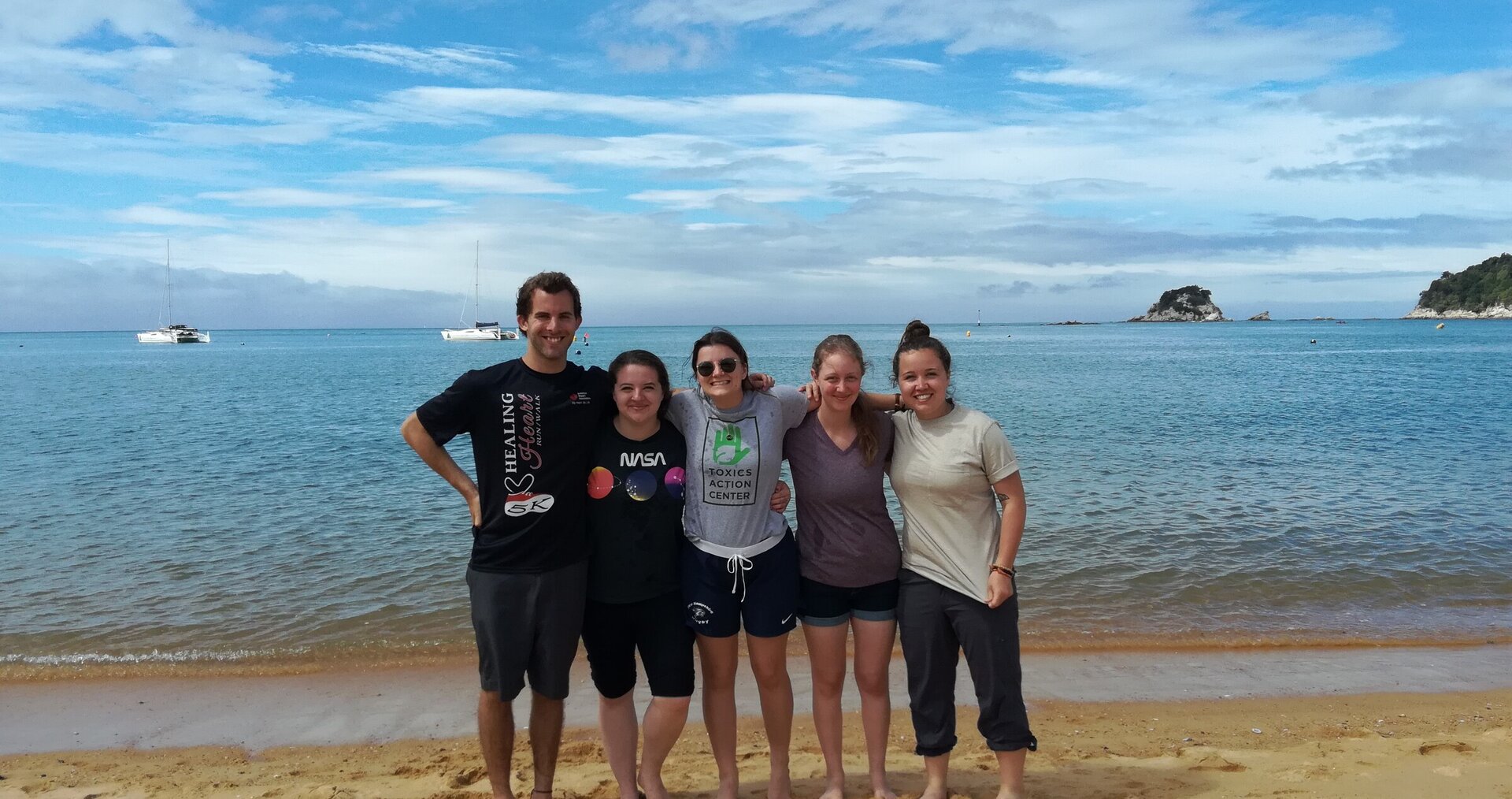Carol's Story Continued...
In February 2020, our inaugural team of five arrived at the Sandcastle in Golden Bay, New Zealand. We were jet lagged and a little travel weary, after our flight halfway around the globe and the ride over mountain switchbacks in the EcoQuest van to Pohara. Dave made sure we were well fed. Aneika answered our culture shock questions. Willy made sure no time was wasted, because even jet lagged students can learn something. Scott made sure we laughed. Ria and Jono welcomed us and infused us with their energy and enthusiasm that we were there, in a new country, surrounded by trees and birds we'd never seen before, with a team of people originally from Aotearoa New Zealand, as well as from Canada, the UK, and Europe ~who are now all kiwis (New Zealanders), from both rural and urban places, each with a different perspective to share with us.
We were still glowing from their warm welcome, when we received our official welcome at Onetahua Marae. I felt as though New Zealand itself opened its arms and called us in, asking about the places that helped grow us and the people who raised us. Meeting people by learning the rivers and mountains and ancestry that make them who they are was such a different and deeper experience than the "name, major, year" method at college, and it opened my eyes to the theme that continued over the rest of the semester: that the world is not merely a resource to be protected, and agriculture is not simply a business. The world is part of us, whether that be in the Māori sense of everything having its own spirit and intrinsic value, or in the lasting impact of each place we live on who we are and what we identify as home. Agriculture is a way of life, and sustainability is a mindset beyond a set of rules to fix a resource crisis.
The Connors run their family's farm because it was their childhood home, and they want to preserve it for future generations in their family and their community. Loraine and Gianni grow Organic food with their own careful management guidelines because they believe that food should be healthy for consumers, producers, and the non-human residents of the land alike. Māori at the Marae protect and cultivate their land, their traditions, and their families because their connection to their community and the land that raised them is so important that it is sacred.
Connection to people and place were so often key factors in what we learned - how could I not develop a connection for myself? Our learning went beyond the classroom, from the beach to the farmers' market, to fields and forests and quiet nights on the Marae, to the kitchen and the van and a tent in Willy's back yard.
I hoped to have ‘an experience of a lifetime’ and to have my horizons expanded, solidify what I learned in college, and make some new friends. In the end, I fell in love with a place, gained a new perspective, and found a family I didn't know I had. For five weeks, until sadly the worldwide pandemic saw us return to the US, the South Island of New Zealand was my home. While I am back among the hills that raised me now, I count my place in New Zealand as part of my pepeha when I introduce the places that made me who I am.
Carol Blum
University of New Hampshire 2020

